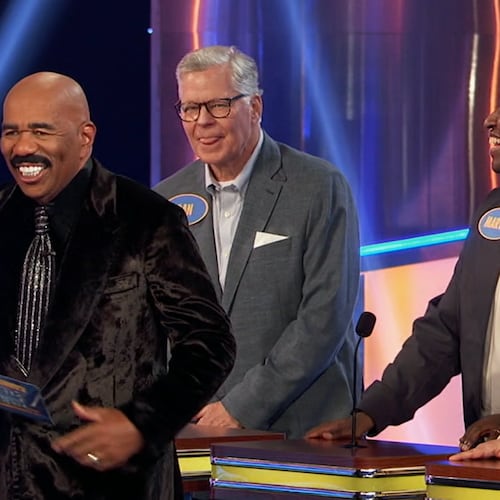Originally posted Thursday, December 19, 2019 by RODNEY HO/rho@ajc.com on his AJC Radio & TV Talk blog
The family for the deceased stuntman John Bernecker killed during a fall on 'The Walking Dead" set in Senoia in 2017 received $8.6 million in civil damages from a jury today.
AMC Networks was not found liable of negligence and neither was actor Austin Amelio, who was also named in the wrongful death lawsuit. The jury, after two days of deliberations, also chose not to proffer punitive damages.
The civil damages will be covered by insurance.
“There is no winning or losing in this situation,” AMC said in a statement after the verdict. “This was a terrible and tragic accident and our sympathies continue to go out to John Bernecker’s famliy and friends.”
The final dollar amount was less than what Bernecker’s parents sought given Bernecker’s relatively young age of 33.
Bernecker took part in a stunt in July of 2017 on a balcony where he was supposed to fall about 20 feet onto a “catcher” system meant to absorb his fall. Amelio, who played Dwight on the show, was supposed to appear to force Bernecker over the 42-inch-tall railing but not actually touch Bernecker.
Jeff Harris, the attorney for Bernecker's mom Susan, said Amelio may have touched Bernecker, possibly contributing to him changing trajectory. Bernecker, as shown in a video of his fall, was supposed to jump over the railing but instead grabbed the railing with his left hand for 3.25 seconds, causing him to miss the main target by several feet. He instead landed on his head on the hard ground instead of the cushions.
His head injuries led to his death two days later.
Ultimately, the jury decided Amelio was not responsible in any way.
Harris had argued that “The Walking Dead” did not follow proper safety policies and some extra cushions on the ground would have prevented the accident.
“This death was entirely preventable if basic policies and procedures were followed,” Harris said during his closing arguments Tuesday.
The defense said proper safety procedures were indeed in place and most of the blame should fall upon Bernecker, an experienced stuntman who lived in Atlanta. He had an apartment locally and a house in his hometown of New Orleans.
Bernecker had more than 100 stunt credits to his name including “Black Panther,” “Game Night” and “Rampage.”
David Dial, the defense attorney for "The Walking Dead" production companies, summarized it thusly in terms of his clients during his closing arguments: "No one was at fault. People were acting reasonably."
He argued that the show covered itself for what was expected to occur. “It was not reasonably foreseeable that was going to happen,” he said, referencing Bernecker’s fall. “The law doesn’t require you to plan for it.”
The jury also decided that Bernecker was an independent contractor. The defense had argued he was a “day employee” which meant he was only eligible for worker’s compensation.
This is another win for Harris in a film-related wrongful death case. Harris previously represented Sarah Jones, a camera assistant killed by debris while trying to get away from a train during the shoot of a film called "Midnight Rider" in 2014 near Savannah. A jury in 2017 awarded Jones' family $11.2 million in civil damages.
In a statement, Harris said: “John was a remarkably talented stunt professional who had an incredibly bright future in the film industry. My sincere hope is this verdict sends a clear message regarding the need to both elevate and strictly adhere to industry safety standards every day, on every shoot, on every film set.”
AMC, in its statement, noted: “The set of ‘The Walking Dead’ is safe and is managed to meet or exceed all industry standards and guidelines related to stunts and stunt safety. That has been the case across the production of 10 seasons and more than 150 episodes, and it continues to be the case today, notwithstanding this very sad and isolated accident.”
About the Author
Keep Reading
The Latest
Featured




